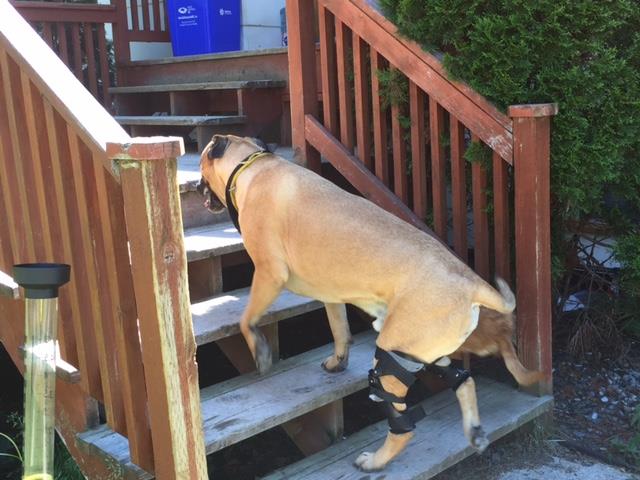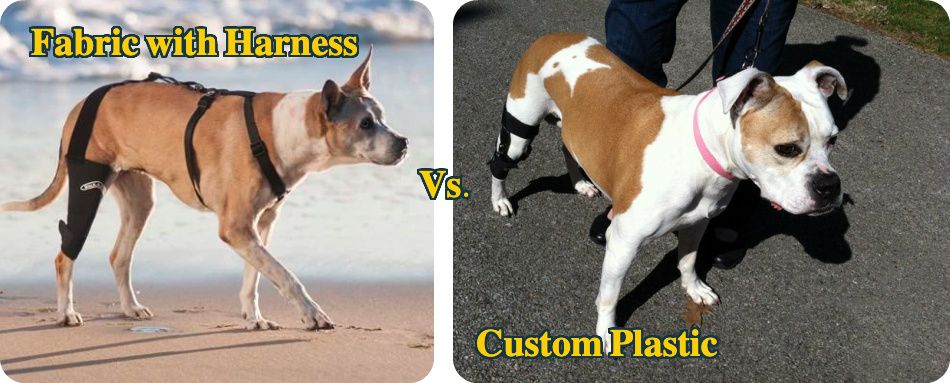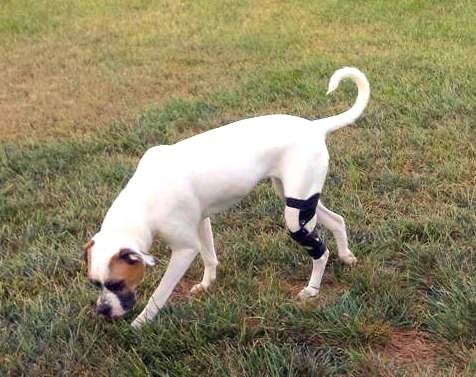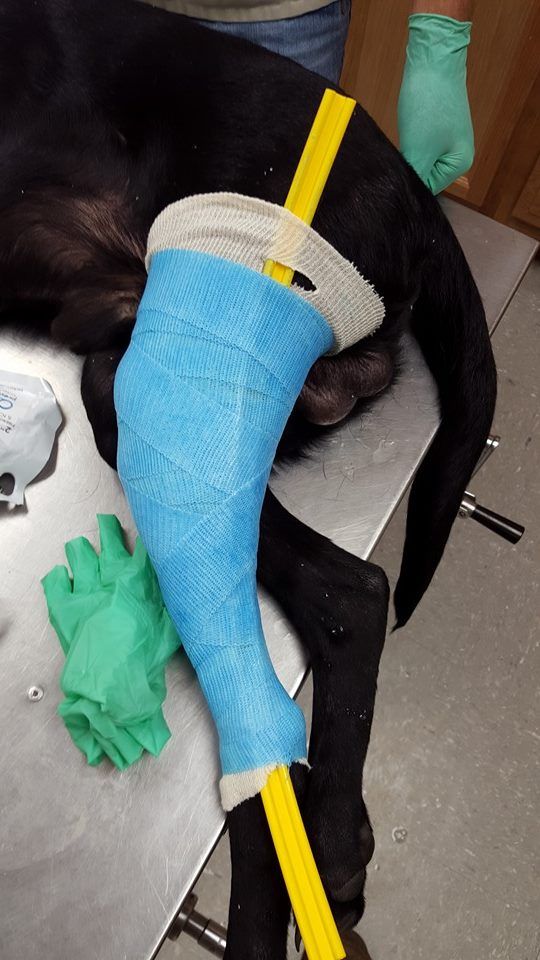Do knee braces really work for dogs?

The quick answer is yes. So why didn't my Veterinarian offer bracing as an option to help my dog? Many Veterinarians didn't have much success with early braces designs, which left them with a bad taste in their mouths. So much has changed over the past 15 years.
Early braces were made by do-good pet parents. They all started by looking for solutions to help their limping dog. Yet, these pet parents didn't quite understand some mechanical principles to make the knee braces effective.
Today, braces are made by actual orthotists (people trained in brace making) who have researched mechanics and materials that work for dogs.
To better understand what has changed, let's look at dog knee braces from 3 different perspectives.
1- Fabric Vs. Plastic Braces

To better answer the question, you need to have a simple understanding of what "bad motion" we are trying to limit with a brace. In dogs, an ACL tear allows a bad motion called a cranial drawer. This motion is the tibia slipping forward under the femur.
This slipping startles your dog because its leg feels unstable. It can also be painful. Over time, slipping causes inflammation that results in arthritis in the joint.
If dogs want to play... they won't really put weight on their foot unless their knee feels stable. This is likely why they also tear the other ACL.
Fabric braces were the first braces used to address this problem. The big problem is that fabric stretches. Because of this stretching, it is physically impossible to stop the slipping, so they didn't work.
Also, fabric braces need some sort of harness to hold them on the leg. The harness made it very complicated to put on. It also limits the motion in the hip joints, so your dog cannot move very easily.
Today, we use plastic that is more durable and can actually limit bad motion.
Some worry about the comfort of plastic, but I can vouch as an amputee, that wearing a stable plastic device is so much more comfortable than a fabric piece that rubs back and forth. The fabric feels like a rope burn.
To replace the harness, plastic braces actually form fit around bones so they can stay on the leg. This allows the dog to move more fluidly.
Some are tempted to start with a fabric brace until they can afford a plastic brace. Knowing how well a fabric brace works, you really are better off saving your money until you can afford the support you need.
2- Surgery Vs. Surgery Not Possible
Many people cannot have surgery. Which has led people to look for other options to help their dogs. Surgeons know surgery works, so it can be hard to look at other options like bracing. In the end, we want to help all the dogs.
Surgeries like TPLO or TTA change the geometry of the bones and do not need added support from a brace. Surgeries like lateral suture or extracapsular work better with bracing. Heavier dogs can break the suture in these surgeries. Adding support from a brace is beneficial to help prevent too much pressure on the suture from failing.
Dogs that cannot have surgery need some extra help until their body forms a medial buttress. (The medial buttress is the scar tissue that stabilizes the knee.)
Veterinarians always like to see proof. Studies have been done by veterinarian colleges to help us know that braces do work. If you are a big researcher, you can access those here.
If Not, Here's A quick synopsis.
A study done at Colorado State Veterinary School showed surgery wins out over bracing 98% to 85% for owner satisfaction. So though not perfect, there is merit in bracing dogs that CAN NOT have surgery.
University of Georgia Veterinary School did a study in a gait lab (complex measuring camera model.) It showed the braces cause a shift in the knee motion when a dog puts its weight on the leg (when the bad motion happens). However, it is not clear if this means that the brace stops the bad motion.
The University of Louisville did a study simulating a dog's leg and a torn ACL, which showed the brace did as well as any surgery limiting the bad motion. And that the more rigid the joints, meant the brace did a better job limiting the bad motion.
Most credible companies are supporting more research to validate what they have seen with thousands of successful patients. However, there will always be skeptics.

Surgery is best, AND if you cannot have surgery for whatever reason, you have to figure out how you can best help your dog.
In human medicine, we do surgery AND a brace because insurance pays for both. In veterinary medicine, we generally choose surgery OR a brace.
Ultimately, how you help your dog is your choice.
3- Custom Made Braces Vs. Small, Medium, Large Fit All
People who think braces don't work likely don't understand this difference. So, let me try to simplify it...
If you were to tear your ACL, you would have 14 different sizes to fit your leg.
Do you know how many breeds of dogs there are?
The World Canine Organization recognizes 364 different breeds with a wide variety of shapes and sizes.
So, how many different sizes of knee braces would you need for dogs?
14 x 364 = 5096

Okay, this is a large overstatement, but you get the picture. Fitting dogs can be really tough with a few sizes.
It is important to remember the bad motion we are trying to correct. The movement is so small that we really need a good-fitting brace to limit that cranial drawer motion.
Simply put, one size fits all is really one size fits NONE for dog knees. Ready-to-fit knee braces do not work. Custom is key to playing again!
Custom just means you have to do a little bit more work upfront for the best chance for success. The casting process is pretty simple. Check out our casting tips to help.

Ultimately, if you are here, you are trying to help your dog. We want to help you help your dog, too!

